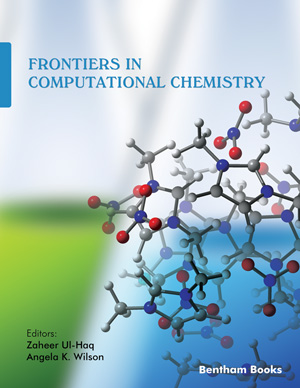Abstract
Obesity is the effect of imbalance between energy intake and expenditure and forms a fundamental basis of the metabolic syndrome. A number of substances implicated in the regulation of energy metabolism represent opportunities for anti-obesity drug development. Neuronal histamine and its receptors have been shown to regulate energy metabolism and are considered as anti-obesity targets. Several histamine receptor subtypes have been identified; of these, histamine H1 and H3 receptors (H1-R and H3-R) have been specifically recognized as mediators of energy intake and expenditure. In addition, several histamine drugs related to H1-R and H3-R, have been shown to attenuate body weight gain both in rodent and human. These results provide the reagents for histamine receptors biology and may find applications in the treatment of obesity and related metabolic disorders. In this review, the development of agonists and antagonists of histamine receptors are provided.
Keywords: Histamine, food intake, obesity, histamine H1 receptors, histamine H3 receptors, histidine decarboxylase, brain, metabolic syndrome, histamine H1, H3 receptors, hypertension, diabetes, stroke, N-methyltransferase, hippocampus, amygdala, basal ganglia, betahistine, chlorpheniramine, antiobesity agent, neurotransmitter, Thioperamide, R-methylhistamine, anorectic effects, anti-psychotic olanzapine caused, hyperphagia, hypothalamic AMP-kinase, arcuate nu-cleus, ventromedial nucleus
Current Medicinal Chemistry
Title: Neuronal Histamine and its Receptors: Implication of the Pharmacological Treatment of Obesity
Volume: 17 Issue: 36
Author(s): T. Masaki and H. Yoshimatsu
Affiliation:
Keywords: Histamine, food intake, obesity, histamine H1 receptors, histamine H3 receptors, histidine decarboxylase, brain, metabolic syndrome, histamine H1, H3 receptors, hypertension, diabetes, stroke, N-methyltransferase, hippocampus, amygdala, basal ganglia, betahistine, chlorpheniramine, antiobesity agent, neurotransmitter, Thioperamide, R-methylhistamine, anorectic effects, anti-psychotic olanzapine caused, hyperphagia, hypothalamic AMP-kinase, arcuate nu-cleus, ventromedial nucleus
Abstract: Obesity is the effect of imbalance between energy intake and expenditure and forms a fundamental basis of the metabolic syndrome. A number of substances implicated in the regulation of energy metabolism represent opportunities for anti-obesity drug development. Neuronal histamine and its receptors have been shown to regulate energy metabolism and are considered as anti-obesity targets. Several histamine receptor subtypes have been identified; of these, histamine H1 and H3 receptors (H1-R and H3-R) have been specifically recognized as mediators of energy intake and expenditure. In addition, several histamine drugs related to H1-R and H3-R, have been shown to attenuate body weight gain both in rodent and human. These results provide the reagents for histamine receptors biology and may find applications in the treatment of obesity and related metabolic disorders. In this review, the development of agonists and antagonists of histamine receptors are provided.
Export Options
About this article
Cite this article as:
Masaki T. and Yoshimatsu H., Neuronal Histamine and its Receptors: Implication of the Pharmacological Treatment of Obesity, Current Medicinal Chemistry 2010; 17 (36) . https://dx.doi.org/10.2174/092986710794182944
| DOI https://dx.doi.org/10.2174/092986710794182944 |
Print ISSN 0929-8673 |
| Publisher Name Bentham Science Publisher |
Online ISSN 1875-533X |
Call for Papers in Thematic Issues
Advances in Medicinal Chemistry: From Cancer to Chronic Diseases.
The broad spectrum of the issue will provide a comprehensive overview of emerging trends, novel therapeutic interventions, and translational insights that impact modern medicine. The primary focus will be diseases of global concern, including cancer, chronic pain, metabolic disorders, and autoimmune conditions, providing a broad overview of the advancements in ...read more
Cellular and Molecular Mechanisms of Non-Infectious Inflammatory Diseases: Focus on Clinical Implications
The Special Issue covers the results of the studies on cellular and molecular mechanisms of non-infectious inflammatory diseases, in particular, autoimmune rheumatic diseases, atherosclerotic cardiovascular disease and other age-related disorders such as type II diabetes, cancer, neurodegenerative disorders, etc. Review and research articles as well as methodology papers that summarize ...read more
Chalcogen-modified nucleic acid analogues
Chalcogen-modified nucleosides, nucleotides and oligonucleotides have been of great interest to scientific research for many years. The replacement of oxygen in the nucleobase, sugar or phosphate backbone by chalcogen atoms (sulfur, selenium, tellurium) gives these biomolecules unique properties resulting from their altered physical and chemical properties. The continuing interest in ...read more
Current advances in inherited cardiomyopathy
Describe in detail all novel advances in multimodality imaging related to inherited cardiomyopathy diagnosis and prognosis. Shed light to deeper phenotypic characterization. Acknowledge recent advances in genetics, genomics and precision medicineread more
 19
19
- Author Guidelines
- Graphical Abstracts
- Fabricating and Stating False Information
- Research Misconduct
- Post Publication Discussions and Corrections
- Publishing Ethics and Rectitude
- Increase Visibility of Your Article
- Archiving Policies
- Peer Review Workflow
- Order Your Article Before Print
- Promote Your Article
- Manuscript Transfer Facility
- Editorial Policies
- Allegations from Whistleblowers
- Announcements
Related Articles
-
Metabolic Functions of Myostatin and GDF11
Immunology, Endocrine & Metabolic Agents in Medicinal Chemistry (Discontinued) Fluoxetine and all other SSRIs are 5-HT<sub>2B</sub> Agonists - Importance for their Therapeutic Effects
Current Neuropharmacology The Update of NGAL in Acute Kidney Injury
Current Protein & Peptide Science Fungal Bioactive Compounds in Pharmaceutical Research and Development
Current Bioactive Compounds Palladium-Catalyzed Oxyarylation, Azaarylation and α-Arylation Reactions in the Synthesis of Bioactive Isoflavonoid Analogues
Current Organic Synthesis Selective Estrogen Receptor Modulators (SERMs): Effects on Multiple Organ Systems
Current Medicinal Chemistry Acute Cardioembolic Cerebral Infarction: Answers to Clinical Questions
Current Cardiology Reviews Rho Kinase Inhibitors: Potential Treatments for Diabetes and Diabetic Complications
Current Pharmaceutical Design Novel Targets for Antiinflammatory and Antiarthritic Agents
Current Pharmaceutical Design 3D Printing as a Significant Achievement for Application in Posttraumatic Surgeries - A Literature Review
Current Medical Imaging Baroreflex Function: Determinants in Healthy Subjects and Disturbances in Diabetes, Obesity and Metabolic Syndrome
Current Diabetes Reviews Management of Hypertension in the Acute Phase of Stroke
Current Hypertension Reviews Extrapulmonary Sarcoidosis: A Chameleon Disease at Imaging
Current Medical Imaging Lyn Regulates Cytotoxicity in Respiratory Epithelial Cells Challenged by Cigarette Smoke Extracts
Current Molecular Medicine Repetitive Transient Phosphodiesterase-3 Inhibition Eliminates Non-ischemic Cardiac Remodeling and Failure
Immunology, Endocrine & Metabolic Agents in Medicinal Chemistry (Discontinued) Understanding The Role of Inflammasome in Angina Pectoris
Current Protein & Peptide Science Tissue Distribution and Pharmacodynamics: A Complicated Relationship
Current Drug Metabolism Electrocardiographic and Cardiac Autonomic Indices - Implications of Sex-Specific Risk Stratification in Women After Acute Myocardial Infarction
Current Pharmaceutical Design Homocysteine Level and Mechanisms of Injury in Parkinson's Disease as Related to MTHFR, MTR, and MTHFD1 Genes Polymorphisms and LDopa Treatment
Current Genomics Isolation, Structural Determination, and Evaluation of the Biological Activity of 20(S)-25-methoxyl-dammarane-3β, 12β, 20-triol [20(S)-25-OCH3-PPD], a Novel Natural Product from Panax notoginseng
Medicinal Chemistry























